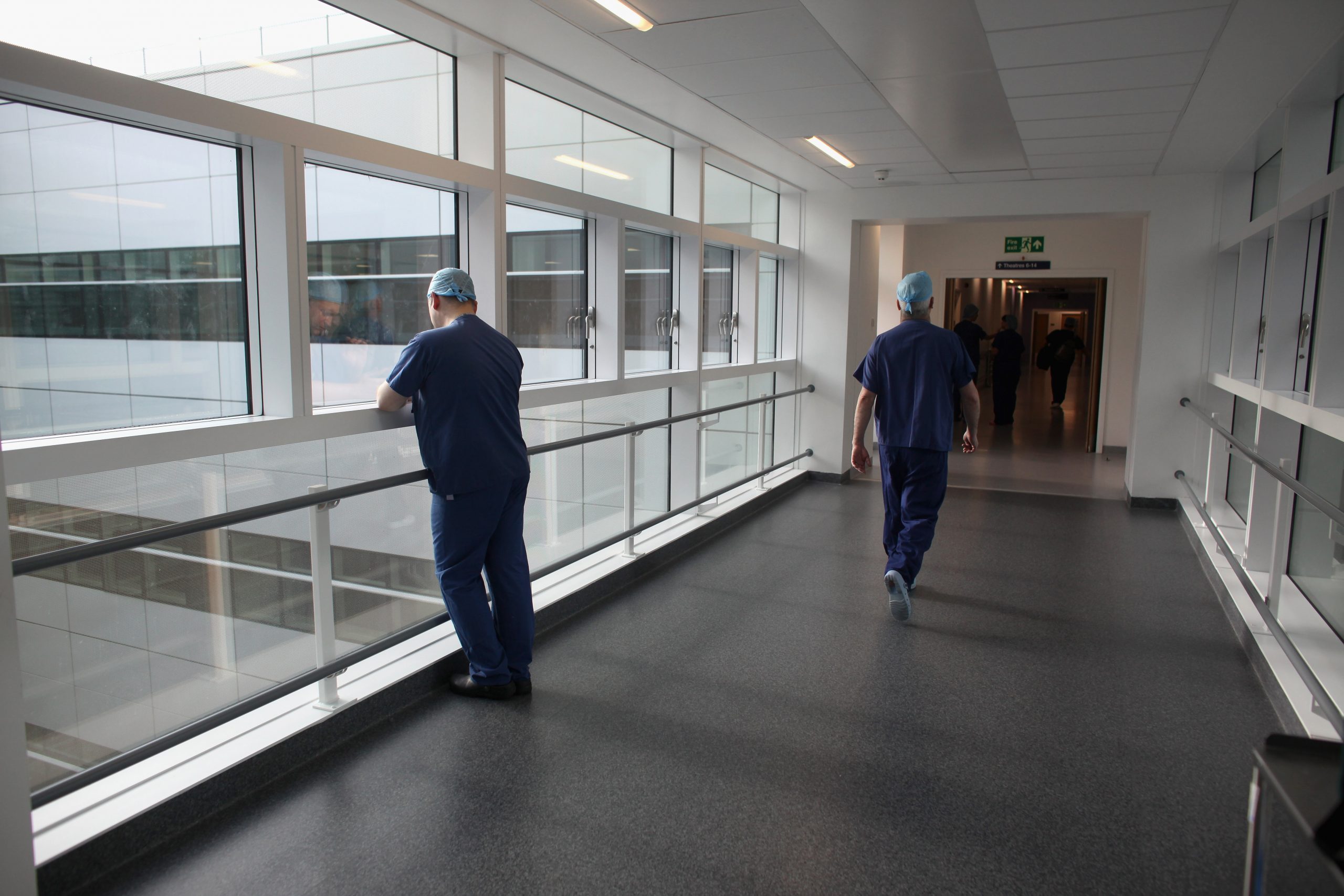
I didn’t have a moment with an office door closing, a chair pulled up and a consultant breaking the bad news that I had bowel cancer. Instead it was a much more gradual revelation. The first time I heard the c-word linked with my name was during a colonoscopy, a bowel examination by a tiny camera attached to a flexible tube, inserted after a purging couple of days of laxatives. It sounds much worse than it is. I didn’t feel a thing, honestly.
Everyone over 50 – or younger if you have a family history or symptoms – should get tested for bowel cancer. The strangest thing was when they gave me a huge pair of paper shorts, with flies up the back instead of the front, to wear under my hospital gown.
I was lying on my side, staring fascinated at a screen, as they did their tour of my insides. My bowel was much bigger than real life and made me think of the tubes children played with in the 1970s that wailed when you swung them round your head. At least that’s how I remember it. The drugs they had given me might have boggled my mind.
The medics dismissed a few polyps as too small to worry about; they are the precursors of tumours and early on look like pimples. Then a nasty-looking mushroom shaped growth showed up on the screen. Two doctors spent a long time looking at it as I drifted in and out of a warm doze. I was awake when I heard them say it looked like cancer. I was intrigued rather than alarmed. The drugs were doing their work.
Time for a tea break
I had a chat with the doctors in the recovery area once I had woken up a bit. The NHS offers you a tea and a traditional selection of biscuits – including my favourites, bourbons and custard creams. But the final confirmation had to wait until I had more tests, surgery to remove the tumour and a report from the pathology lab. It turned out I needed chemotherapy – eight three-week cycles.
I’m halfway through and it has not been nearly as bad as I expected. Each cycle starts with a day at the hospital for blood tests and intravenous drugs. Then two weeks of tablets, followed by a recovery week with no medication. So far I have been lucky with side-effects. I get tingling in my fingertips and the odd day of tummy trouble.
I haven’t been sick. (You get used to discussing poo when you have bowel cancer.) I go to the gym when I feel up to it. Mostly I feel normal until I try to act normally, then I get tired. So I sit on the sofa absorbing Brexit coverage.
My turn on the sofa
To start with I had no desire to tell anyone other than my family, friends and employers that I had cancer. I came out as a cancer patient because I felt selfish keeping quiet. My friend and BBC colleague George Alagiah has been treated for bowel cancer for around five years. He has been speaking out on the need for routine testing and helping Bowel Cancer UK. I contacted them and they asked me to go on BBC Breakfast, a programme I used to present, to talk about testing.
I had none of the classic symptoms of bowel cancer: bloody poo, weight loss, change in bowel habits, extreme tiredness for no obvious reason, tummy pain or a lump. But in Iraq last year I had severe pains in my legs and back, which were diagnosed as the result of scar tissue from earlier surgery. That got me thinking and I went to my GP, who sent me for a test. If she hadn’t, my tumour might have still been growing inside me, unknown and getting more dangerous. I am optimistic. The odds are in my favour and the doctors say the chemo is “curative”.
The Bowen Bounce
I was surprised that my appearance on Breakfast, sitting next to Deborah Alsina, the CEO of Bowel Cancer UK, had a big impact. Most of the papers got in touch. The NHS said there had been a “Bowen Bounce”, with thousands more people than usual visiting its website to find out about bowel cancer. I didn’t feel great talking about my medical history to people I knew, let alone on BBC One. But I realise that if you work in broadcasting you can have some influence; that’s why I felt selfish about keeping quiet. Now I’m pleased to have spoken out. If even one person gets tested and treated in time to get better, it has been worth it.
Surrendering control
I joined the BBC 35 years ago this month. Most of the time I have been a foreign correspondent, often in dangerous places. One day I lay face down in the snows of Grozny in Chechnya as the Russian air force bombed very close by. I thought I was about to die, or to suffer excruciating pain, but the bombs missed me and killed other people. I had surgery a few years ago to take buckshot out of my ear and my leg after I was shot by the Egyptian security forces.
I have lots of other stories like that; so do many of my colleagues. Cancer is different. As a reporter, I always try to stay in control. When you have a serious illness you have to surrender control, to trust medical experts who have spent years studying and treating your illness. Of course I ask questions, though since a few scares I have stayed a long way from Dr Google’s cancer tips. I will get through this.
Jeremy Bowen is BBC Middle East editor and a patron of Bowel Cancer UK. He tweets @BowenBBC






